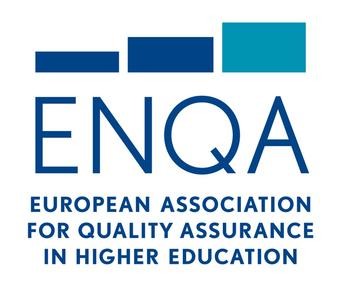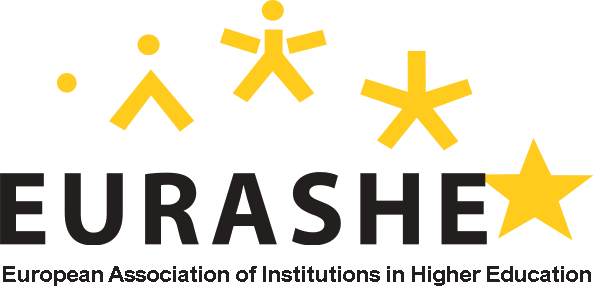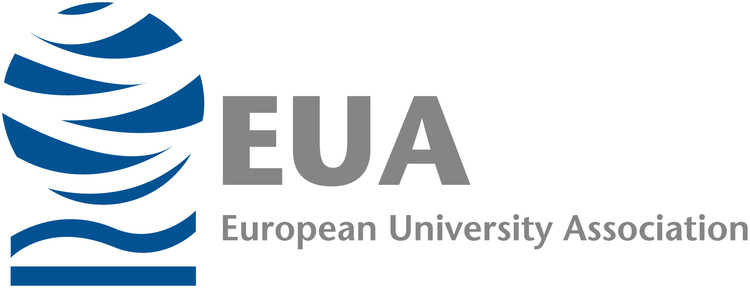Consultative members
European Association for Quality Assurance in Higher Education (ENQA)

The European Association for Quality Assurance in Higher Education (ENQA) is a consultative member of the Bologna Follow-Up Group.
The mission of the European Association for Quality Assurance in Higher Education (ENQA) is to drive the development of quality assurance by representing agencies internationally, supporting them nationally, and providing them with comprehensive services and networking opportunities. ENQA promotes the enhancement of quality and the development of a quality culture in higher education.
ENQA works to contribute to a European Higher Education Area in which students have access to high quality education and can achieve qualifications that are respected world-wide.
ENQA is open to the diversity of higher education systems and quality assurance approaches and adheres to the following values:
- Transparency: ENQA publishes its policies, procedures and criteria for decisions and reports.
- Independence: ENQA actively promotes the operational independence of quality assurance agencies and supports the autonomy of higher education institutions.
- Collaboration: ENQA works in a consultative manner with its members and affiliates, European partners and fellow associations.
- Integrity: ENQA operates with integrity and in a fair, equitable, impartial, objective and professional manner.
ENQA’s contribution to the Bologna Process (updated in 2009)
- 2001-2003: collaboration in establishing a common framework of reference for quality assurance and working towards the establishment of the EHEA by 2010;
- 2003-2005: drafting the ESG in co-operation with its member agencies and the other members of the E4 Group (EUA, EURASHE and ESU). The ESG were adopted in Bergen in 2005;
- Consultative member of the BFUG since 2005;
- 2005-2008: active contribution to the establishment of the European Quality Assurance Register for Higher Education (EQAR) icon external link, together with its E4 partners. Publication of the E4 Group’s icon pdf Report to the London Conference of Ministers on a European Register of Quality Assurance Agencies. EQAR, the first legal entity emerging from the Bologna Process, was founded on 4 March 2008 by the E4 Group;
- Membership of the BFUG Working Group “European Higher Education in a Global Setting”;
- Organisation, within the framework of the BFUG work programme, of a Bologna seminar on “Transnational education (TNE) and the OECD-UNESCO- Guidelines for quality provision in cross-border higher education” to be held in London on 1-2 December 2008.
Quality assurance agencies
The report presents a collection of current features of practice in international activities in external quality assurance. It reflects the priorities formulated by ENQA and ministers of higher education who adopted the Yerevan Communiqué (2015), and the ESG 2015, both of which emphasise mobility and internationalisation.
In addition, the present report identifies international activities that are supported by governments and maps the areas of potential risk, as well as benefits, in the internationalisation of external quality assurance. The report poses a question as to whether an international market of quality assurance services is emerging, and if so, how it should be developed.
A Toolkit for Quality Assurance Agencies
This Toolkit is the result of a project co-financed by the Erasmus Mundus Programme of the European Union and coordinated by the European Association for Quality Assurance in Higher Education (ENQA).
The project, called Quality Assurance of CrossBorder Higher Education (QACHE), aimed at enhancing the quality assurance of higher education provided across national borders. Download the Final report of the QACHE Project.
In the context of the QACHE project, cross-border higher education (CBHE) refers to any learning activity in which the students are based in a different country from the country in which the institution providing the education is located. This includes the cross-border mobility of study programmes and higher education providers, such as branch campuses overseas, collaborative partnerships in the form of joint-programmes, validation or franchising arrangements, and distance learning provision, but excludes international student mobility.
RELATED DOCUMENTS
- ENQA Report to the Bologna Ministerial Anniversary Conference of March 2010
- ENQA Position paper on Quality Assurance in the EHEA - 2009
- European Register of Quality Assurance Agencies 2007
- ENQA Report 2005 - Standards and Guidelines for Quality Assurance in the European Higher Education Area (ESG)
- BFUG5_6e ENQA application
- BFUG2_9_Progress for ENQA


